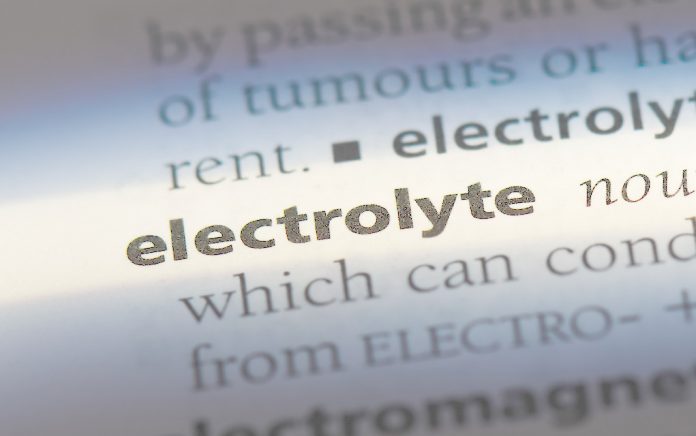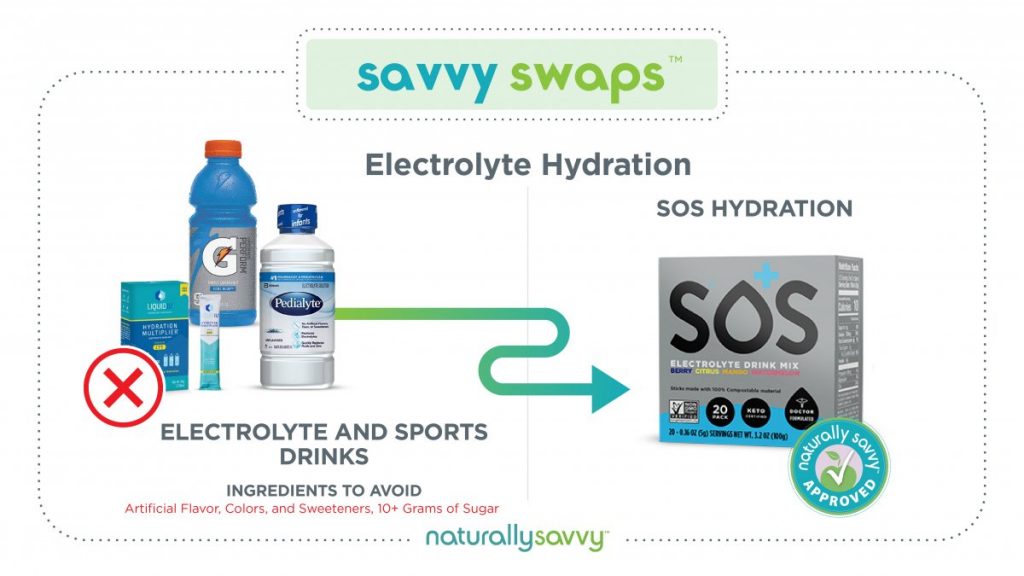
Are you getting enough electrolytes? How do you replace your electrolytes? What’s the best way to get electrolytes? It seems like a lot of people throw around the word “electrolytes”, but do we actually know what they are and why so many people talk about them?
I did a little experiment and asked a half dozen people if they could name the important electrolytes and what they do. No one named all six, although one person did name five. Everyone thought you can get them from certain electrolyte drinks and that it isn’t good to allow your levels to go too low. Not a terrible start, but let’s go a lot deeper!
What are electrolytes?
Electrolytes are electrically charged minerals or compounds that are found in your blood, tissues, urine, and other bodily fluids. There are six electrolytes: calcium, chloride, magnesium, phosphate, potassium, and sodium.
Levels of electrolytes fluctuate as the amount of water in your body changes. Ideally, the amount of water you consume should equal the amount you lose or eliminate. You can upset this balance by, say, sweating excessively and not drinking enough water. Other things that can cause your water balance to change are the use of some medications (e.g., steroids, laxatives, diuretics), vomiting, malabsorption due to digestive or intestinal issues, chemotherapy treatments, chronic respiratory problems, elevated blood pH, and kidney or liver problems.
Why are electrolytes important?
Electrolytes are important because they are involved in several life-supporting activities, including:
- Regulating the fluid levels in your blood plasma and body
- Moving nutrients into your cells
- Transporting waste materials out of your cells
- Keeping your body’s acid/base (pH) level in the normal range (7.35-7.45)
- Enabling your muscle contractions, including your heartbeat
- Transmitting nerve signals from your muscles, heart, and nerve cells to other cells
- Helping your blood to clot
- Assisting in the formation of new tissue
Now you know why people are so adamant about getting enough electrolytes!
What are the symptoms of low electrolytes?
The symptoms of low electrolytes may depend on which mineral is in short supply. The range provided for each electrolyte is a reference range and may vary slightly between laboratories.
- Calcium: Low calcium may not cause symptoms, but if it is chronically low, you may see changes in your hair, skin, and nails. You also may experience yeast infections, leg and back cramps, and muscle irritability. 9.0-10.5 mg/dL
- Chloride: Low chloride can occur if you’ve experienced excessive vomiting or are taking loop diuretics. 98-106 mEq/L
- Magnesium: Low magnesium may cause abnormal heart rhythms and muscle cramps or spasms. 1.3-2.5 mg/dL
- Phosphorus/phosphate: Low phosphate may cause respiratory failure, heart failure, muscle weakness, seizures, and coma. Poor nutrition, use or certain diuretics, and alcoholism can cause low phosphate levels. 3.0-4.5 mg/dL
- Potassium: Low potassium may cause abnormal heart rhythms and how your body stores glucogen (a source of energy for your muscles). Very low potassium can cause cramps, spasms, muscle weakness, and respiratory problems. 3.5-5.0 mEq/L
- Sodium: Low sodium causes water to move into your cells. It is usually marked by thirst, but also can be accompanied by confusion, headache, lethargy, and personality changes. 136-145 mEq/L
Where do you get electrolytes?
You can get electrolytes from foods, beverages, and supplements. Water infused with electrolytes is one choice, and one of the best beverages to replace electrolytes is coconut water, which contains five of the six minerals (sans chloride) or an electrolyte powder you can add to water on the go like the ones from SOS Hydration.
Be especially mindful if choosing a beverage that advertises itself as an electrolyte or sports drink. Many of the popular products on the supermarket shelves have a high sugar content as well as artificial flavorings and colors. Read labels carefully before making your purchase!

Foods that are a rich source of electrolytes include avocado, bananas, bell peppers, carrots, celery, citrus fruits, cucumbers, cultured dairy, kiwi, pineapple, and watermelon. Make these a part of your diet as much as possible.
Bottom line
Now you have a better idea about what electrolytes are, how important they are to your health, and where to get them. Be sure you and your family keep your balance!
Read this next: 16 Reasons Why Your Energy is Low or Depleted
Reference
Nurse Key. Assessment and care of patients with fluid and electrolyte imbalances.





